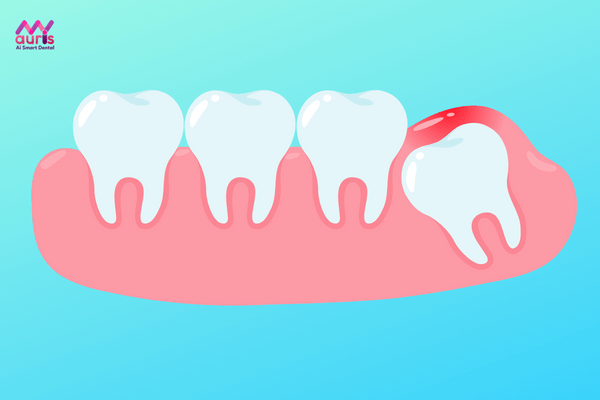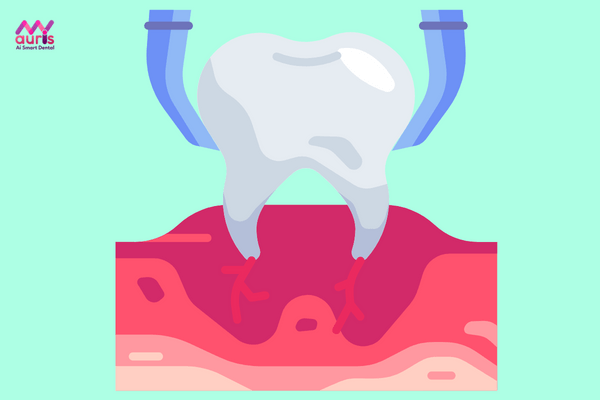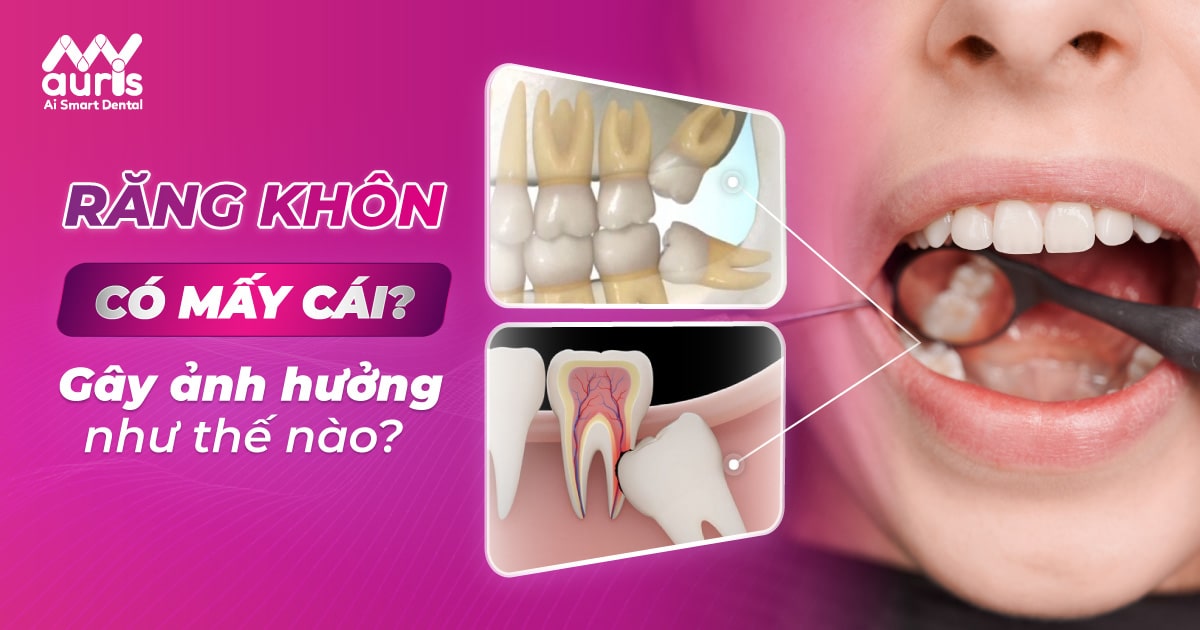Wisdom teeth are teeth that begin to emerge when we reach adulthood. Growing wisdom teeth causes many troubles, not only pain but also dangerous complications. Therefore how many wisdom teeth there are is an issue that most people are concerned about. For more information about this issue as well as the level of impact that wisdom teeth bring, follow the article.
What kind of teeth are wisdom teeth?
Wisdom teeth are considered the third molars. Wisdom teeth begin to move when they reach adulthood from 17-25 years old. However, depending on each person, some people grow their wisdom teeth earlier or later.
Wisdom teeth grow last at the four corners of the jaw, so the position is very hidden and difficult to observe. This also hinders cleaning and observing the condition of teeth when there are problems.

Normally, people discover wisdom teeth when they feel pain and tenderness in the innermost corner of the jaw. When you touch the gum area in this position, it feels softer. Observe and you will see that the gums are red and swollen. Some people may experience headaches and mild fever when wisdom teeth grow. And anyone finds it difficult to eat and chew.
How many wisdom teeth are there?
How many wisdom teeth are there The answer is there are 4 wisdom teeth, growing in 4 corner positions of the jaw when we reach adulthood. Every time wisdom teeth grow, it is an obsession. According to dentists, a total of 32 teeth in humans. By the age of 12-13, the permanent teeth are complete on the jaw. At this time, people have a total of 28 teeth, including 14 upper molars and 14 lower molars.
When you reach 17-18 years old, wisdom teeth begin to erupt with signs of pain because the teeth penetrate the gums to emerge. Wisdom teeth will not grow all at once, but in waves, perhaps weeks, days or months. Or in some cases, wisdom teeth just erupt, then stop growing permanently.

Another surprising thing is, the number is white.ng on each person’s jaw will not be enough 32 pieces. Because some people only grow 2 wisdom teeth on the lower jaw or 2 wisdom teeth on the upper jaw. Or some people will not grow wisdom teeth. Therefore, there is a difference in the total number of teeth on the jaw for each person.
How do teeth not affect oral health?
After knowing how many wisdom teeth there are, the problem that wisdom teeth have on oral health is also noticed. important. Because in reality, they rarely grow straight but grow obliquely, crookedly, underground,… affecting the teeth and general health.
Swollen gums
When teeth begin to grow, the gum area around the teeth will be red and swollen. If not treated, it can form a pus abscess or cause inflammation
Pain
The pain of wisdom teeth growing is common, the only difference is the degree for each person because of different growth conditions. If a crooked tooth hits the cheek or adjacent tooth number 7, it will cause severe pain. This situation needs to be handled promptly because it will affect the cheek mucosa, causing scratches and prolonged bleeding, causing infection. If it hits tooth number 7, if not removed quickly, it will cause tooth number 7 to lose bone and may have to be removed together.
Jaw deviation
Growing into adjacent molars number 7 also leads to shifting of the front teeth
Bad breath, tooth decay
Wisdom teeth that grow crookedly and in hidden positions are difficult to clean. And it’s also very easy to put food inside. From there, creating conditions for bacteria to attack and detect. Deep bacteria damage the tooth enamel structure, forming cavities. Food continues to get trapped in these cavities, further aggravating the condition, leading to bad breath.
If wisdom tooth decay is not treated promptly, it will spread to neighboring teeth.
Effects on general health
When teeth hurt, it will affect the ability to chew and eat, thus affecting the ability to chew and eat. Patients often lose their appetite and skip meals. Or not chewing thoroughly can affect digestion, stomach and ability to absorb nutrients.

Persistent wisdom tooth pain, making the patient lose sleep. Therefore, poor appetite and restless sleep are often heard when wisdom teeth grow. This causes decreased health, loss of strength, insomnia, and body fatigue.
Treatment measureswisdom tooth?
In cases where wisdom teeth grow crookedly, grow underground, grow obliquely into tooth number 7 or pierce the cheek, have an abnormal shape, or have complications: inflammation, tooth decay, etc. The doctor will advise removal. Removing these wisdom teeth helps you reduce the burden of trouble, limit future complications as well as protect the permanent teeth in the jaw.
However, to safely remove wisdom teeth and minimize complications, people should choose a reputable, quality dentist to have it done. Because tooth extraction is painless and not dangerous, it depends on the skill and experience of the doctor, supporting equipment and machinery, infrastructure, systems and tools to ensure sterility, etc.
Should 2 wisdom teeth be extracted at the same time?
Removing two wisdom teeth at the same time is still possible. However, this will affect your health as well as your ability to heal. Because removing 2 teeth at the same time in different positions will be very difficult in eating, hygiene and dental care.
Moreover, removing 2 wisdom teeth at the same time requires health to meet the doctor’s requirements. Therefore, even if you have a need, it cannot be done without your doctor’s permission. If you arbitrarily remove it or go to unreliable places to do it, there are many potential dangers.
Normally, the doctor will only extract 1 wisdom tooth. After the wound heals, the second tooth will be extracted. In addition, in cases where the wisdom tooth grows straight and does not cause any impact, there is no need to remove it.

Thus, the useful information that My Auris dentistry shares in the article helps everyone understand How many wisdom teeth are there? As well as some related information. It is important that everyone should choose a reputable dental clinic to have their wisdom teeth extracted.
Anh Thy





